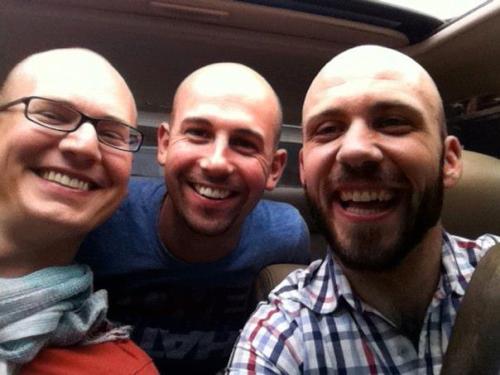
What Catches Our Attention (And What Doesn’t)
Reshma observed
About a group of doctors she works with
“They talk all about Lady Gaga
But nothing about the wars we’re in”
For Robert
To Whom It May Concern,
I had Mr. Robert MacArthur in my Social Justice course from the Department of Theological Studies at Saint Louis University in the fall semester of 2005. He and I have met a couple of times after that course and we have exchanged occasional correspondence when he no longer lived in St. Louis.
In that course, we considered men, women, and social movements that challenged exploitation, militarism, poverty and the prison-industrial complex. We read a biography of Roy Bourgeois who served in the military in Vietnam and later became a Catholic priest with the Maryknoll Missionaries. Members of the class joined me and others in the St. Louis community in participating in the annual protest at the U.S. School of the Americas at Fort Benning, Georgia, which was led by Fr. Bourgeois. We also read the work of Kathy Kelly, a former Catholic high school teacher in Chicago who repeatedly took humanitarian aid to people in Iraqi hospitals who were suffering from U.S./U.N. sanctions against that country. Like Bourgeois, Ms. Kelly is dedicated to nonviolence not simply as a social change tactic but as a way of life. We read the autobiography of Sister Chan Khong from Vietnam, Learning True Love. She and the Engaged Buddhists of her country refused to take sides and instead risked their lives to care for those harmed by the warring parties. One of the precepts of her community is “Do not kill. Do not let others kill. Find whatever means possible to protect life and to prevent war.”
I knew at the time that Mr. MacArthur was involved in ROTC. The class was presenting another viewpoint —from a variety of religious perspectives—than the one he was in the process of embracing. I found him to be a consistently thoughtful, open, and curious student. He became involved in two projects with which I was familiar—the local house of hospitality for homeless women and their children, Karen House (of the Catholic Worker Movement) and the Center for Survivors of Torture and War Trauma, which was started by a good friend of mine, Sister Jean Abbott. These “insertions” allowed Mr. MacArthur to come face to face with people victimized by violence, racism, and war.
Some time after he had been in that class, he sent me copies of annotations and reflections he had made of a book I had written about my late wife, Mev Puleo (The Book of Mev). His marginalia were mini-essays, actually; I felt honored and inspired by his extremely responsive reading. He obviously took much time and thought in considering her story: a Catholic photojournalist who had been committed to making a “preferential option for the poor” by her projects in Haiti, Brazil, Mexico, and El Salvador.
During that period, Mr. MacArthur had been exposing himself to challenging viewpoints and alternative ways of life; yet he remained set on his path with the Air Force.
Recently, I have become aware of his journey of the last several years, which has involved his increasing clarity of his inability and unwillingness to be in any way connected to the war enterprise. Like Bourgeois, Kelly, and Chan Khong, service and nonviolence have become central to his identity. I have taught Plato’s Apology to students these last several years; Mr. MacArthur has long exemplified the well-known Socratic dictum, “The unexamined life is not worth living.” I have no doubt of the sincerity of his convictions, which have been gradually solidified through various and intense personal struggles.
Please contact me if I can offer anything else in regards to Mr. MacArthur’s commitments.
Sincerely,
Dr. Mark Chmiel
Adjunct Professor of Humanities and Intercultural Studies
Maryville University
Spitting on Him Would Have Been Preferable
He’d been home a couple of months
Against his better judgment
He said yes he’d come
To his fraternity’s party
Before he left for Iraq
He never drank alcohol
Even with his fraternity brothers
And at the gathering he wouldn’t drink
He suspected he wouldn’t last long
Little things unnerved him
Like seeing so many people
Casually fingering their cell phones
He was hanging with three friends
Talking about baseball
When he was over there
He’d daydream about being in the stadium back home
Now he had no interest whatsoever
To go downtown to a game
His peripheral vision indicated
Someone was approaching
Turns out, a woman his age
Named Stephanie
“Hey, Stef,” Brandon said
“Meet Drew”
Both smiling, they shook hands
Brandon: “Drew just got back from Iraq”
Stef: “Oh really? How cute!”
Drew looked across the room and pointed
“Hey, I’m going over to see Jordan”
He said politely
So he could get leave and get way
The fuck away from his fellow Americans
Walter Reed
by Katie Murphy
He was about my brother’s age.
He was wearing BDUs, and he had his hat on inside.
He was sitting in a wheelchair.
He was pulling prescriptions out of his backpack and handing them to the pharmacist.
He had a bright red scar along the length of his right calf.
He was missing his left leg below the knee.
He made eye contact with me for maybe a second.
He was about my brother’s age.
Safety First
At the community college Royesha told me
Since her brother’s come back from Iraq
He’s been having nightmares
At family gatherings, parties
He always positions himself in the far corner in the biggest room
To be able to see everything that’s going on
This page is part of my book, Dear Love of Comrades, which you can read here.